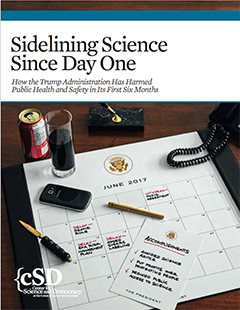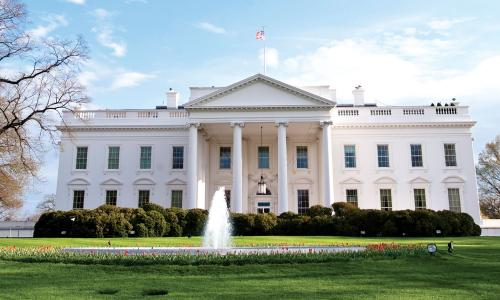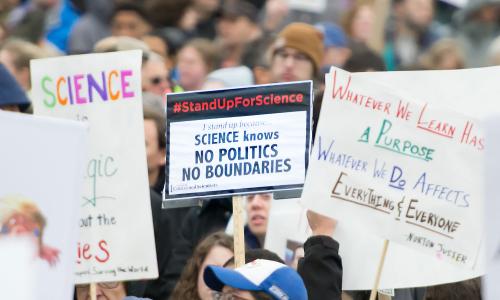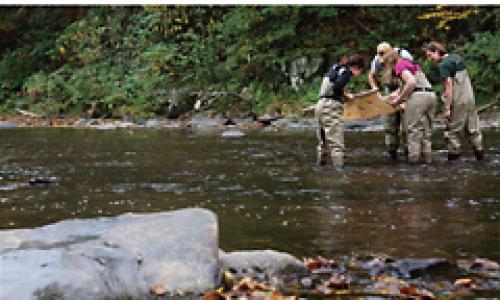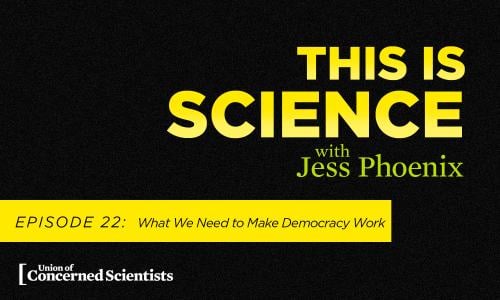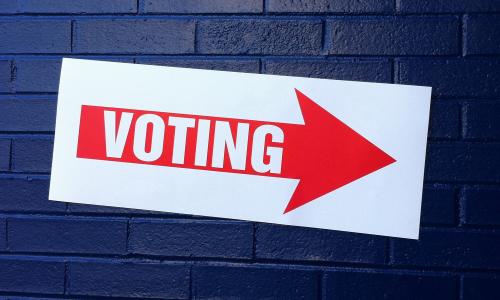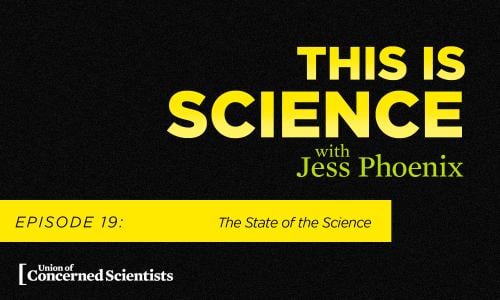Since President Trump took office in January 2017, his administration (aided and abetted by Congress) has waged a war on science—undermining the role of science in public policy, giving industry undue influence on decisionmaking processes, creating a hostile environment for federal scientists, and reducing public access to scientific information.
This pattern of anti-science actions threatens the health and safety of the American people, with the greatest impacts likely to fall on the nation's most vulnerable populations. The science community and the general public have responded to this threat with vigorous resistance, and we must continue to stand up for science if we are to prevent the worst potential consequences of the Trump administration's actions.
These are the findings of a new UCS report, Sidelining Science Since Day One, that details dozens of cases where science has been ignored, denied, distorted, silenced, or hidden from public view over the administration's first six months.
Political interference in government science is not new. Previous administrations and their allies have engaged in many of the same kinds of attacks the report identifies. But under the Trump administration, these threats to the federal scientific enterprise have escalated markedly.
The report documents a long list of tactics being used by the Trump administration and Congress to diminish the role of science in our democracy:
- Sidelining independent science advice. The Trump administration has weakened federal advisory committees that provide scientific advice to the government.
- Appointing conflicted individuals to scientific leadership positions. President Trump has appointed to the highest positions in government individuals with little science background and with strong ties to the industries they are charged with regulating.
- Leaving key science positions vacant. President Trump has taken an unusually long time to fill many high-level science positions, signaling the low priority his administration places on science.
- Revoking science-based safeguards. Aided and abetted by Congress, President Trump has allowed politics to supersede science by signing an unprecedented 13 congressional resolutions rolling back science-based protections, including safe drinking water standards and safeguards to prevent worker exposure to harmful chemicals.
- Misrepresenting climate science and rolling back climate change safeguards. Attacking science-based policies and communications on preparing for and mitigating climate change is a clear focus for the Trump administration. Officials have misrepresented climate science, removed climate-related content from several government communications, and proposed sharp reductions in climate research.
- Weakening science-based pollution standards without scientific justification. The administration has delayed or repealed several science-based pollution standards designed to protect public health, including protections against mercury, air toxics, and coal wastewater, without replacing them with new, scientifically defensible standards.
- Undermining protections from hazards at work and home. The Trump administration has delayed many science-based rules intended to keep communities safe from dangerous chemical spills and to safeguard workers from harmful toxins, with little to support halts except for letters and petitions from companies or industry trade associations.
- Altering scientific content on federal websites. The scientific content of federal agency webpages, including those of the Environmental Protection Agency, the State Department, and the Department of Energy, has been altered or deleted since January, particularly in regard to climate change science.
- Reducing public access to data. The Trump administration has reduced public access to scientific data and information. The administration also has stopped collecting certain data for programs that benefit disadvantaged groups. And it has withdrawn requests to industry to supply data that would help inform public health and environmental protections.
- Restricting communication of scientists. The Trump administration is making it more difficult for government scientists to speak publicly about their work, as well as about misconduct within an agency. It has restricted communication with Congress, placed vague gag orders on agency staff, and failed to affirm the ability of scientists to share their expertise publicly.
- Creating a hostile environment for scientific staff. Evidence is growing that a culture of fear is increasing at government agencies, undermining scientific research and communication. Scientists are speaking to the media anonymously out of fear of retaliation; some are afraid to utter the words “climate change.”
What we can do
In coming decades, the United States will face some of the most difficult challenges in its history. Science and technology will play a crucial role in helping us meet these challenges. The public deserves independent, impartial scientific information, even—or perhaps especially—when that information indicates the need for politically unpopular or inconvenient action.
Recognizing the stakes, scientists and science supporters are speaking up, building on the momentum of successful marches and new opportunities for political engagement, and highlighting the likely consequences of the administration's actions for public health, safety, and the environment.
To defend the federal scientific enterprise and the public protections that it supports, the report offers recommendations for scientists and science supporters, Congress, and the media:
- Scientists and science supporters should scrutinize administration and congressional actions and sound the alarm when science is misused. They can also play a unique role in articulating to others the importance of science in our daily lives. Communicating the importance of science and science-based policies to the public and decisionmakers is crucial to fighting attacks on science in this highly charged political environment.
- Congress should use its oversight authorities to investigate and hold accountable the administration for actions that threaten scientific integrity and science-based policies, and it should act to protect whistleblowers. With the growing trend of abuses against science in the Trump administration, Congress must exercise its full authority as a check against the executive branch. Also, Congress should pass legislation to better protect federal scientists and the integrity of science in our federal agencies.
- Journalists must continue to hold administration officials and members of Congress accountable for their words and actions and investigate cases of suppressing, misrepresenting, manipulating, or otherwise politicizing science, along with related allegations of wrongdoing in our federal government. The media should seek out scientists as sources when possible and call out agencies that place unnecessary barriers on communications between journalists and government scientists.
